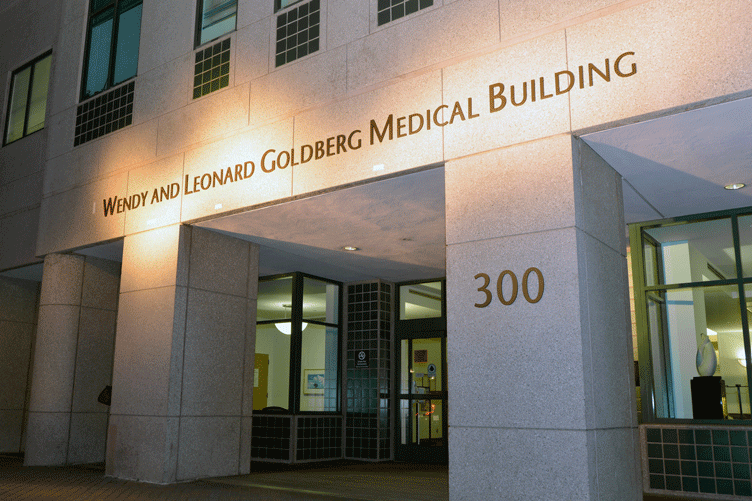Every ten seconds, someone in the U.S. goes to the emergency room with a migraine-related complaint. Migraine, a disorder that is debilitating to hundreds of millions of people worldwide, affects women more than men and tends to be inherited. It is a significant public health problem. Yet despite its staggering social and economic costs, migraine is the least publicly funded of all neurological illnesses relative to its impact on the economy.
An Unprecedented Gift
Recognizing the serious need — and knowing that UCLA has the expertise to respond to it — Wendy and Leonard Goldberg recently pledged a remarkable contribution to UCLA health sciences, a large portion of which is allocated for the neurosciences, in particular migraine research.
“The Goldberg gift, the largest gift ever from individuals to support this type of discovery, will completely transform the landscape of migraine research and treatment at UCLA,” says Dr. Andrew Charles, the Meyer and Renee Luskin Chair in Migraine and Headache Studies. Charles, who also directs the migraine program in David Geffen School of Medicine at UCLA, says the gift will enable a multi-disciplinary team to bring forward new therapies, provide the best care, and improve quality of life for those who suffer from migraine.
Longtime Supporters for Long-term Progress
The gift establishes and endows the UCLA Goldberg Migraine Program. In honor of their longtime generosity to UCLA, dating back to 1981, the building at 300 Westwood Boulevard has been named the Wendy and Leonard Goldberg Medical Building.
“Leonard and I have seen firsthand in friends and family members how debilitating migraines can be,” says Wendy Goldberg. “We are eager to help find better treatments and, ultimately, a cure.”
Thanks to their uncommonly generous gift, the most common neurological condition in the developed world will face in UCLA a bolstered and inspired opponent.
Published March 2016

Donors Wendy and Leonard Goldberg

Wendy and Leonard Goldberg Medical Building

Dr. Andrew Charles



